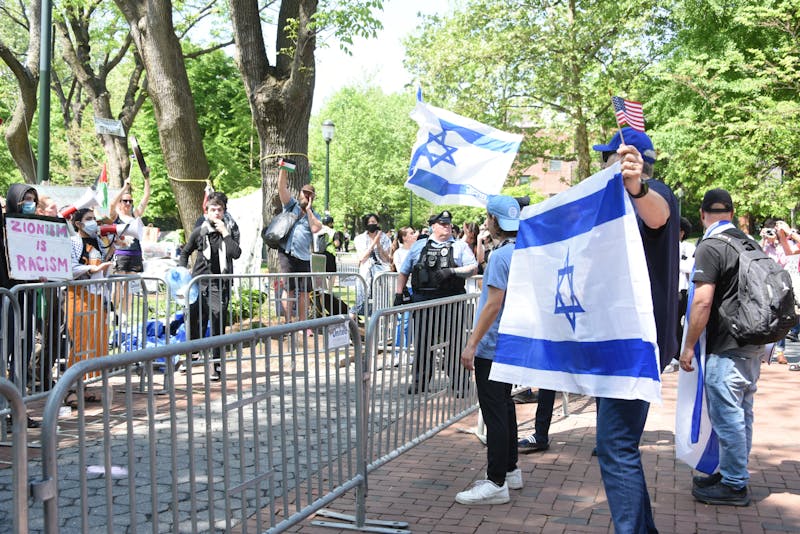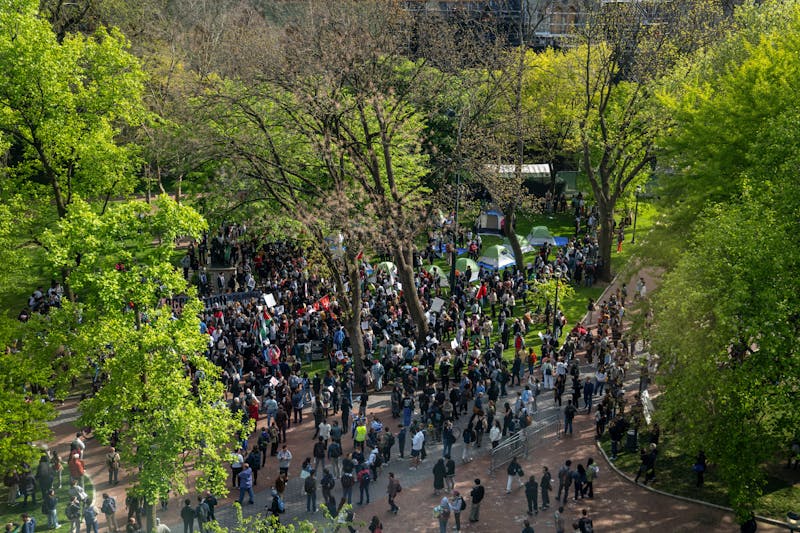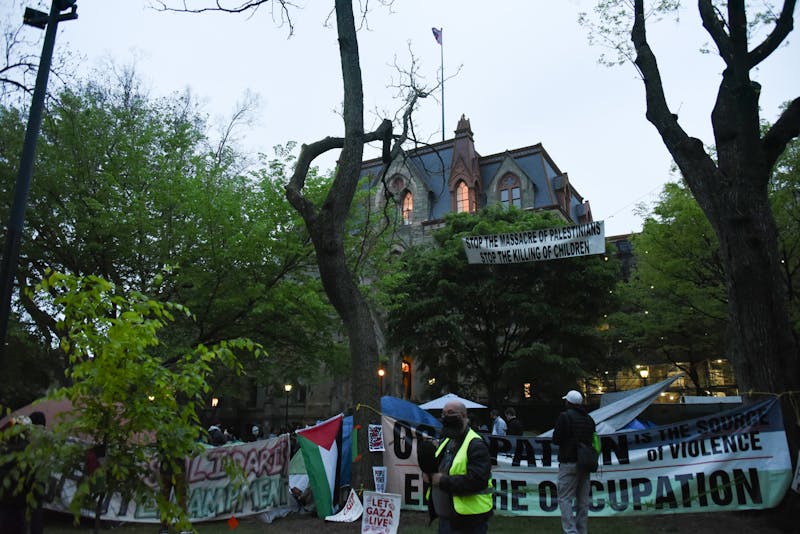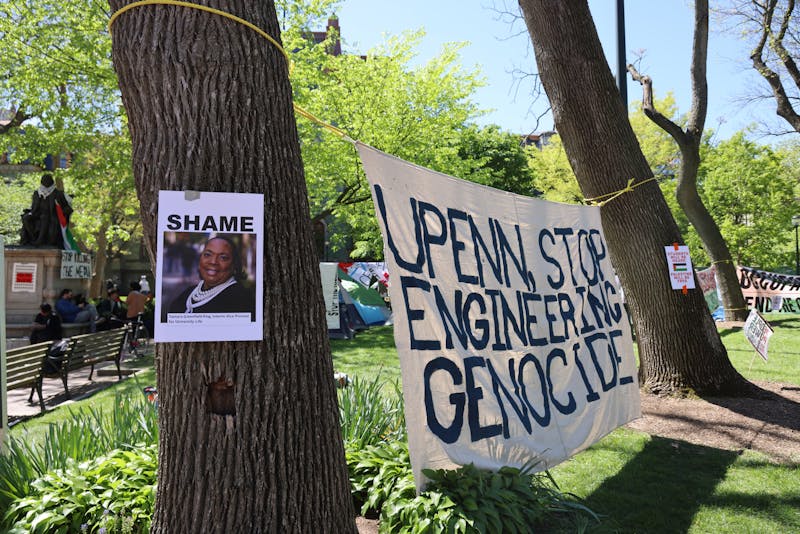
Ancient Jewish wisdom provides a framework for the ethos of scholarship. The Talmud, which is a compilation of the discussions regarding biblical Jewish law and theology, relays the following discussion: Rabbi Elazar quoted Rabbi Chanina, stating that “students of wise people, increase peace in the world.” The Hebrew term for such a person is a “talmid chacham.” The Jewish way of life advocates that the pursuit of intellectual inquiry and advancement should be motivated by the moral imperative to increase peace in the world. Scholarship motivated by any other ideal is tainted or misguided.
It is an important mental exercise to consider the teachings of the Talmud when assessing the current protests roiling university campuses across the United States. Are these student protesters working to increase peace in the world?
I am certain that any serious student engaging in these protests would answer unequivocally yes. These students are protesting a war they perceive as unjust, and they are demanding their institutions to divest from businesses that engage in commerce with the Israeli military. The student protesters hope that if they are successful, Israel will become a pariah among the nations of the world and will be cut off from global commerce, which is increasingly vital for survival in the 21st century. Their thinking must be that Israel would be forced to discontinue their war efforts to dismantle Hamas and rescue the remaining 129 hostages. Their protests also insist that Israel must end the occupation of the West Bank and help facilitate the creation of a Palestinian state.
Does the logic of their strategy hold merit? Are their methods and actions morally defensible?
In terms of the logic of their strategy, it is naively optimistic and fails to consider many crucial matters required to resolve the current conflict between Israel and Hamas. In the increasingly interconnected and interdependent global economy, how exactly do they propose to divest from companies that do business with the Israeli military? Considering most Israelis serve in the military, how do they propose to deal with Israeli companies that are not directly involved with the Israeli military?
It is also important to consider that 21% of Israeli citizens are Arabs, and it is estimated that, before Hamas attacked Israel on Oct. 7, there were 150,000 Palestinians from the West Bank and Gaza working in Israel. How would divestment from Israeli institutions impact Palestinians, Arab Israelis, and Jewish Israelis? It is almost certain that divestment would hurt the Israeli economy and, in turn, more people would suffer the pains of economic recession that could haunt the region for decades. Divestment would worsen life for many individuals in Israel, Gaza, and the West Bank. It is important to remember that most Israelis and Palestinians did not ask for this war. It was forced on them by the sordid crimes committed by Hamas on Oct. 7.
Additionally, if academic institutions in the U.S. were to divest from Israeli companies and sever ties with Israeli institutions, would that force the Israeli government to end their current military campaign and unilaterally establish a Palestinian state? Would Palestinians agree to the borders of such a country? Would Palestinians agree to recognize Israel’s right to exist? Would Palestinians enter into a peace treaty with Israel in return for statehood? How would the Palestinian people ensure that Hamas or other fundamentalist Islamic groups would never again attack Israel from the proposed Palestinian state? What defense assurances can be made to Israel to ensure the safety of Israeli citizens?
Divestment from Israeli companies and institutions is unlikely to lead to the establishment of a Palestinian state and would likely compound hardship for many innocent people who are already suffering the horrors of war.
In terms of the moral defensibility of the protesters’ actions: freedom of expression is sacrosanct and should not be curtailed, especially on a university campus. Students and faculty should absolutely be allowed to voice their opinions. However, decorum is important. The protesters should treat their fellow students with decency and respect. To paraphrase the late Rabbi Jonathan Sacks: “Wise people can disagree but must never be disagreeable.”
The conflict in the Middle East was not caused by university students in the U.S. Harassing and demonizing Israeli and Jewish students and faculty who do not represent the Israeli government is wrong and disagreeable. It is behavior unfit for a talmid chacham. I suspect that many of the student protesters understand this and engage in disagreeable behavior regardless. In many of the images from across the country, protesters are wearing face masks and head coverings that conceal their identities. Student groups have issued bold statements but have been unwilling to affix their signatures to those statements. Some have claimed they conceal their identities out of fear of retribution; however, it seems just as likely the student protesters know their actions are inflammatory and wish to maintain anonymity and deniability.
The student protesters are passionate, and the majority of them have noble intentions. However, their logic is flawed, and their lack of decorum is disappointing. At this moment, it is important that we remember they are university students, and this is their time to learn from mistakes, grow as intellectuals and develop into the best version of their future selves. Hopefully, this can be a moment of learning for everyone.
YONATAN HILLMAN is a 2008 College graduate in history. His email is yoni.hillman@gmail.com.
The Daily Pennsylvanian is an independent, student-run newspaper. Please consider making a donation to support the coverage that shapes the University. Your generosity ensures a future of strong journalism at Penn.
Donate







